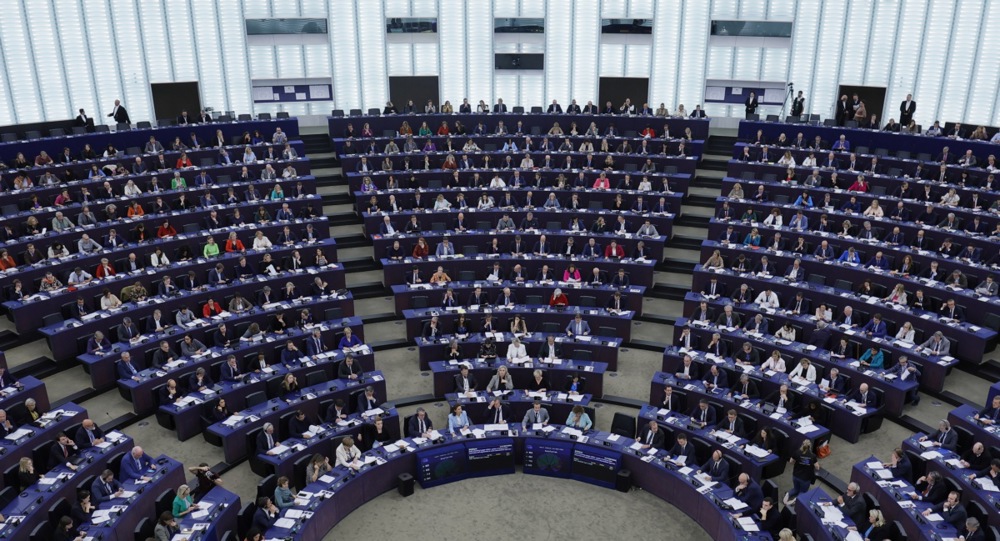Five months since the lights went out on the Iberian Peninsula, Brussels has finally rendered its judgment. On October 3rd, the European Network of Transmission System Operators for Electricity (Entso-E) issued its long-awaited technical report on the April 28 blackout, Europe’s worst power failure in two decades. Millions of Spanish and Portuguese homes were left without power; commerce was brought to a halt; damages were estimated in the hundreds of millions of euros. And all this is announced in the report, veiled in delay, dodges, and that all-too-foreseeable solution: More integration, more centralisation, more Brussels.
The event itself was unprecedented. At 12:33 p.m. local Spanish time (11:33 a.m. in Portugal), the Iberian grid began to unravel—not due to the suspected culprit of voltage collapse, but due to the exact opposite: A sudden injection of excess voltage. Within minutes, cascading disconnects took more than 2,200 MW of clean power offline. Solar and wind farms—claimed to be Europe’s “green revolution” showpiece—became liabilities. As the overload propagated, the Iberian Peninsula was isolated from the rest of the continental network. Two sovereign nations, glued together in a mutual blackout, were left dependent on foreign technical groups to understand what had happened.
The technical details in Entso-E’s report are in all likelihood correct. But the report cunningly avoids doing what would really matter: Ascribing responsibility. Red Eléctrica, Spain’s transmission grid operator, is not faulted. No more so is the Spanish Government, or the renewable operators whose wires collapsed first. Rather, the reader receives a clinical report of cascading failures, with final recommendations conveniently postponed until 2026. Given the severity of the event, this is quite the astonishing lag. Imagine an air crash whose investigators choose to delay for two years before issuing useful safety measures. For electricity, the lifeblood of modern economies, such faffing about is hardly reasonable.
And yet this is no accident. That nobody is to blame is itself a political choice. To admit fault would be to acknowledge that the EU’s top-down rush into renewables has destabilised grids unable to cope. Spain now generates over 50 per cent of its electricity from renewables, with wind contributing nearly a quarter and solar 14 per cent as of 2023. In Portugal, the figure is even higher: An astonishing 71 per cent of the nation’s electricity came from renewable sources in 2024. But renewable generation is inherently intermittent, inclined to surge or vanish in convulsive fits. Without gigantic investment in stabilising measures—batteries, baseload backup, grid upgrades, and others—the system is left dangerously exposed. April 28 illustrated this exposure in disastrous detail.
Rather than confronting this, the Entso-E panel appeals to the Commission’s usual mantra: More integration. The Iberian blackout teaches us, we are informed, that what the continent really needs is more European interconnection, a single rulebook, and still more centralisation of control of the grid. That is, Spain and Portugal must surrender more control over their own electricity networks to Brussels. National sovereignty, already lost in health policy through the pandemic and in fiscal policy through the euro crisis, is now to be forfeited in the field of energy. How convenient.
This script is well known by now. In 2020, the EU used the COVID-19 crisis as a case for a centralised scheme of vaccine procurement. For whatever it was worth, it took bargaining power away from member states to give it to Ursula von der Leyen. That was what led to Pfizergate. In 2022, the conflict in Ukraine served as a pretext for Brussels to assume unprecedented control of energy imports, national capitals being excluded from the negotiation over gas. Climate policy has been similarly drawn to the top: The European Green Deal is more about compliance than it is about the environment. Each crisis—financial, health, military, or climatic—is an excuse for consolidating the centre’s grip. The blackout is merely the latest instance of a process we’ve all seen repeated.
Energy, however, is not a theoretical abstraction. It is factories, hospitals, and homes, operating day to day. For the Iberian peninsula, April 28 was a hard lesson in vulnerability. The loss of 2,200 MW in minutes is equal to the combined output of two nuclear reactors instantly lost to the grid. Homes were plunged into darkness; subway networks ground to a halt; telecommunications were interrupted. Small and medium-sized businesses, which depend on constant supply, were hit hardest. Spanish industry associations’ estimates put direct losses at well over €250 million. For a region that has already been hit hard by high energy prices—the Spanish wholesale electricity price in 2023 averaged €87/MWh, more than twice the long-term pre-crisis average—further uncertainty is intolerable.
And yet, rather than admit to this, Brussels is instead telling us what it always does. “The solution,” say the experts, “is more Europe.” More Europe, however, means less accountability. It means that if blackouts become recurrent, no national government will have to answer. The buck will vanish in a labyrinth of committees, working groups, and reports postponed for years. Citizens will be left in the dark—literally and metaphorically—while the grand project proceeds.
The Entso-E report should have been a moment of truth: a stern reckoning with the risks of destabilising the grid in the name of green dogma. But instead, it is another exercise in political spin. Europe deserves better. Accountability, not energy federalism, is what the Iberian blackout demands. And, without it, the lights may go out again—only next time, perhaps, they won’t come back quite so rapidly.





The battle of the Valle de los Caídos is not about memory, but about power